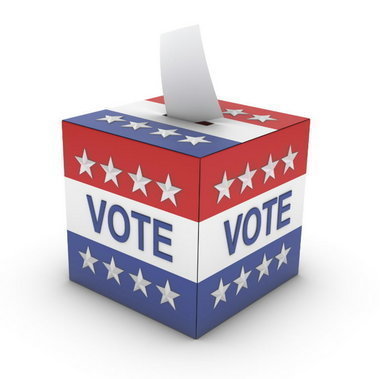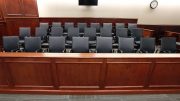A Birmingham man is asking a judge to remove a statewide amendment from the Nov. 8 ballot because he says it could overturn a judge’s ruling that halted Jefferson County’s plan to refinance more than a half-billion dollars in school construction debt and divert much of the $60 million in savings to the county’s general fund and other non-educational projects.
Besides the general fund, money would also go to schools, the Birmingham-Jefferson County Transit Authority, the Birmingham Zoo, and $3.6 million a year towards local legislators’ pet projects in their districts.
Bob Friedman, a member of the Committee to Save Jefferson County, filed a lawsuit in Montgomery County Circuit Court on Monday asking that Amendment 14 be removed from ballots across the state. The lawsuit names six legislators and Secretary of State John Merrill as defendants.
The amendment seeks to validate hundreds of laws – including the Jefferson County sales tax bill – that have been adopted over the past three decades under a certain legislative rule that last year was challenged in court.
Montgomery Circuit Judge Johnny Hardwick has set a hearing for Tuesday to consider a temporary restraining order and preliminary and permanent junctions seeking removal of Amendment 14 from the ballot.
Merrill said Wednesday that he could not comment on the lawsuit because his office has not yet been served with it.
But it’s probably too late to get the amendment off the ballot.
Merrill noted that absentee voting has been going on since Sept. 24 in Alabama. “It would be very, very, difficult to change the process that is in place,” he said.
Merrill also said he supports Amendment 14. He said he voted for it when he cast his absentee ballot on Friday.
The need to validate the hundreds of laws came after Jefferson County Circuit Judge Michael Graffeo in December 2015 declared the state law approving Jefferson County’s refinance plan void because the Alabama Legislature did not properly enact it under a Budget Isolation Resolution.
Under the Alabama Constitution when voting on a bill prior to an annual state budget being adopted legislators must first pass a Budget Isolation Resolution by three-fifths of a quorum – or 32 votes in the House of Representatives – in order to allow the vote on the bill to take place.
But a House rule requires only three-fifths of those voting, a lesser standard. The Jefferson County sales tax bill passed the House after a 13-3 vote on the BIR.
“These votes were, as a matter of law, insufficient to meet the requirement for an affirmative vote of ‘three fifths of a quorum present’ for the House to validly adopt a BIR,” Graffeo stated in his order.
The bill creating Amendment 14, approved during the summer’s special session on the lottery, was sponsored by State Sen. Cam Ward, whose district covers Bibb, Chilton, Jefferson, and Shelby counties.
The bill was approved by the legislature Aug. 25. The next day Montgomery Circuit Judge William A. Shashy issued an order forcing Merrill to include the amendment on the ballot after the Chilton County Health Care Authority filed a lawsuit that same day.
A sales tax to build a new hospital in Chilton County is among the bills affected by the BIR issue, according to that suit. Jefferson County has appealed to the Alabama Supreme Court of Graffeo’s ruling. But the county, in a Sept. 19 motion, asked the high court to stay and action on the appeal until after the election when “the people of Alabama will vote on the ratification of a constitutional amendment that would cure budget isolation resolutions that authorized local laws, like the local sales and use tax in this case.”
Merrill, legislators and others have said that if Amendment 14 isn’t approved by voters, it could open up legal challenges to more than 600 laws statewide that have been adopted without a 32-vote BIR in the House since the 1980s.
Friedman, who is not a lawyer, said he believes those laws would be protected from legal challenges because of statute of limitation.
Amendment 14 states that it seeks to “ratify, approve, validate, and confirm the application of any budget isolation resolution” on bills adopted by the Legislature before Nov. 8, 2016 “that conformed to the rules of either body of the Legislature at the time it was adopted.”
But Friedman said he believes Amendment is “nothing but an end-run” about Graffeo’s ruling to get Jefferson County’s plan approved.
“Frankly, it’s not our job to clear up the terrible mess,” Friedman said of the hundreds of laws that could be affected. “Our job is to protect the school tax money.”
One group, which included Jefferson County state Reps John Rogers and Mary Moore, and an individual taxpayer, Keith Shannon, opposed the new tax and revised spending plan in lawsuits, which led to Graffeo’s ruling. Shannon is one of the two men who filed a lawsuit that resulted in the county’s 2009 occupational tax being struck down in 2010.
Jefferson County officials have said the county needs the money, $36 million a year of which would go into the county’s general fund, to help ease the financial burden it has had since its occupational tax was struck down and helped push the county into bankruptcy in 2011.
Source: www.al.com




